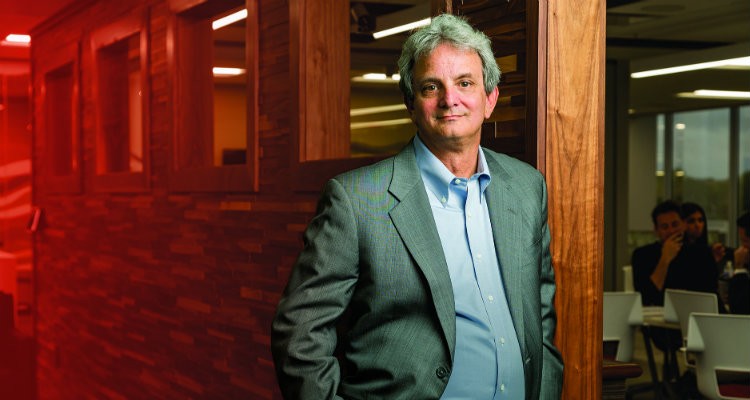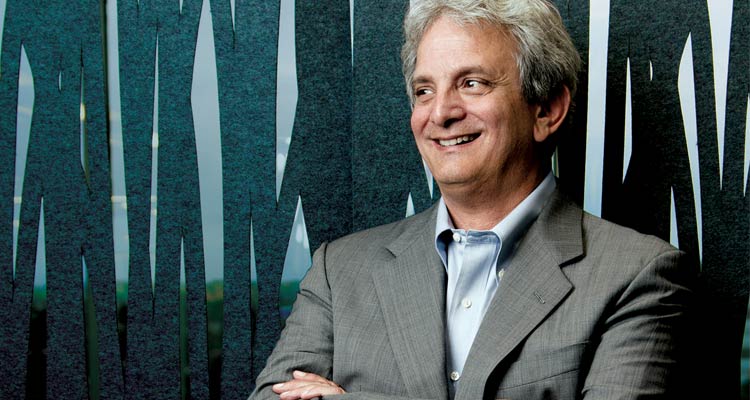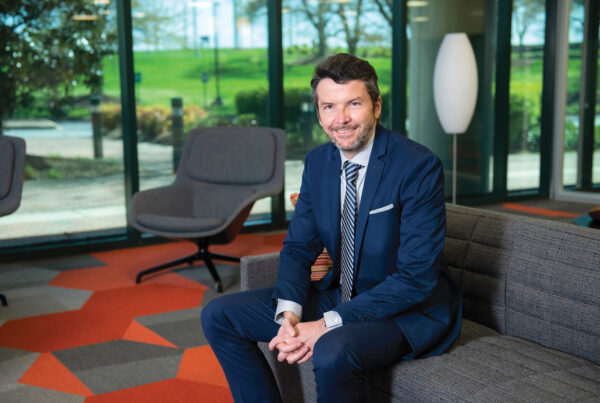When Kelly Services opened its doors in 1946, it was a small brand built on the shoulders of Girl Fridays—secretaries, switchboard operators and stenographers that the company would place in temporary assignments at organizations around the United States.
Over the past 70 years, the company has morphed into a $5 billion global workplace solutions provider with a spot on the Fortune 500. To drive the business forward, Kelly Services moved beyond filling administrative roles, pushing into new professional and technical fields across a wide swath of industries such as law, engineering, health care, education and science. It also expanded its geographic reach, opening offices around the world, including France, India, Singapore and Switzerland. And along the way, it staked its claim as a major player in outsourcing staffing.
But new forces are once again threatening to disrupt Kelly Services.
“Technology is disrupting every industry, and Kelly is at the intersection of multiple touchpoints,” says George Corona, president and CEO, Kelly Services. “Our customers’ businesses are changing rapidly as they implement new technologies, which in turn reshapes their workforce.”
At the same time, Mr. Corona says shifting work styles—such as the rise of independent contractors and more people working remotely—are sparking seismic shifts. “Businesses today are changing the way in which they use talent. They’re changing it because on the other side, talent is changing the way they want to work,” he says. “People are starting to define work on their own terms, as something they do, not someplace they go.”
All this means that Kelly Services must prepare for another transformation. It is a daunting challenge for Mr. Corona, who took on the role of president and CEO at Troy, Michigan, USA-based Kelly Services in May.
To succeed, Mr. Corona says he must reinforce the company’s culture of accountability. Every employee must understand their role in moving the organization in new directions and be empowered to take smart risks—not simply produce predictable results. Only then can the company make major pivots to set it apart from the pack.
“Businesses today are changing the way in which they use talent. They’re changing it because on the other side, talent is changing the way they want to work. People are starting to define work on their own terms, as something they do, not someplace they go.”
Great Expectations
Mr. Corona wanted Kelly Services’ workforce to know he was serious about accountability from the start. So he not only made sure bottom-up accountability was a priority, but top-down as well. “The worst thing you can have is a leader who says, ‘Here’s how you should act, but I get to act differently,’” Mr. Corona says.
On his first day at the helm, Mr. Corona launched “Q in Review” meetings. These quarterly meetings, held the day the company’s sales and earnings are released, are open to all Kelly Services’ employees around the globe, either in-person at headquarters or via Skype. Mr. Corona and other executive leaders explain financial reports, discuss what is working and what is not, and address employees’ concerns.
“I am committed to being transparent about what’s going on in the company and educating employees about where we’re headed and why,” says Mr. Corona. “It’s not just quantity of communication, it’s also quality, substance and opening up channels for two-way conversations. The days of talking at your employees are long gone. People want and deserve to be inspired by their work and by the company that employs them.”
But Mr. Corona says it is not enough to paint a clear picture of the future. Leaders in the organization are responsible for ensuring their own teams’ know-how, where and why they fit into that picture, and help connect them to a vision that is bigger than the bottom line.
“If people don’t understand what their particular role is, then they start to go off and do other people’s jobs,” he says. “And when that happens, it starts to break down your accountability structure.”
Do the Right Thing
Once employees understand their role in the organization and in achieving its strategy, Mr. Corona says leadership must empower them to set their own goals. Being trusted with that responsibility creates accountability and builds buy-in a lot faster than handing down a mandate, he says.
“What I’ve found throughout my career is when you [empower them], the teams generally set more aggressive goals for themselves than you would set for them,” Mr. Corona says. “A lot of people say, ‘If I let my team set the goals, we’re not going to be able to achieve the overall company objective.’ And I’ve never found that to be the case.”
Of course, there are some guidelines. To keep employees on track, Mr. Corona tells them to put the customer at the center of everything they do. That means designing and innovating around customer needs, rather than internal processes or preferences.
From there, employees should “do the right thing.” The right thing, of course, is a matter of opinion. But the idea’s ambiguity is what gives it power. Leaving it open gives people permission to try new ideas—as long as they are ethical and legal.
It is a strategy that Mr. Corona has seen serve the company well. In 1997, while he was serving as vice president of the southeast U.S. region for Kelly Services, one local market leader suggested a new business area for Kelly—education staffing. The then-CEO did not see the business need for the concept, but the leader moved forward with it. The risk paid off. In 2017, Kelly Educational Staffing (KES) celebrated its 20th anniversary. Today, KES services more than 7,000 schools.

“The worst thing you can have is a leader who says, ‘Here’s how you should act, but I get to act differently.’”
Don’t Blame—Learn
Not every move will have such a payoff. In fact, many will downright fail. That is why when an experiment inevitably goes sideways, Mr. Corona says he encourages leadership to focus on lessons, not lectures. “You have to redefine accountability to take the scariness out of the word—you’re not blaming anyone,” he says. “You’re only looking backward to learn. If you have an environment in which people are afraid to fail, they don’t take the appropriate risks, so you’re not out on the edge as much as you need to be.”
But a culture of guilt-free accountability does not maintain itself. It takes constant reinforcement. “And we’re not perfect in that regard,” Mr. Corona is quick to point out.
A big piece of the reinforcement strategy is the regular debrief sessions teams hold to capture and implement lessons learned. Asking employees to talk about failure not only makes the concept more acceptable, it also helps prevent future problems—something Mr. Corona has seen play out time and again, even at the very top of the organization.
He remembers when Hurricane Floyd ripped through North Carolina, USA in 1999, destroying several of Kelly Services’ offices. The company responded swiftly to the disaster, which had drastically disrupted its business. It focused on mission-critical business tasks, such as temporary employee payroll, securing IT systems and monitoring electricity in the local offices.
Through a series of informal conversations with employees about the company’s response to the disaster, Kelly’s executive team soon realized they had made a big mistake.
“What we missed was that the company forgot to take care of its team of full-time employees. These are employees whose homes and livelihood were severely impacted, and we were asking them to focus on the business at a time when they should have been taking care of themselves and their families,” Mr. Corona says.
Kelly Services took immediate responsibility for its shortsightedness and began working to prevent the possibility of a repeat by creating its Emergency Management Center (EMC) at corporate headquarters. “The EMC is designed to relieve the local team of business responsibilities at times of natural disasters, so they can focus on their personal needs and well-being,” Mr. Corona says.
The EMC was put to the test in 2005 when Hurricane Katrina hit the U.S. Gulf Coast. Local teams turned over many day-to-day business operations to the EMC, which successfully managed them for nearly three months. But as technology has evolved, so too has the EMC. Today, trained employees working around the globe are able to manage business matters in the disaster area, relieving the responsibility from the local employees, who are then free to deal with personal and family matters.
It is a model that other companies Kelly Services works with even seek to emulate.
“Now we have customers asking us, ‘How do you handle those emergencies? You seem to handle them so well. Can we learn from you?’” Mr. Corona says. “And that came from one failure.”
Responsibility and Reward
The creation of the EMC was an exercise in course correction. Such corrections can, and should, flow out of performance reviews and reward systems—which must be aligned to strategy, Mr. Corona says.
Connecting these systems to the long-term strategic plan, and using them to instill a sense of individual accountability, moves the entire organization in the same direction.
“It’s making sure that you’re constantly communicating, updating employees on projects, addressing issues and correcting learning as you move along,” Mr. Corona says.
Holding people accountable undoubtedly requires having some difficult conversations. But if done right, they will not hurt morale, Mr. Corona says.
“Make sure that you’re not embarrassing people in big environments, but you’re talking to them individually about their work and how you can make it better,” he says. Accountability is not about discipline, Mr. Corona says. “It’s about taking the responsibility for the work that the organization has given you personally.”






